The typical American adult’s “heart age” is seven years older than their actual age (C.D.C.).
After evaluating men and women from every state, they discovered the USA is a ticking time bomb.
But there are simple methods to stand out and slow downtime.
Also, adding meals that can lessen your risk of heart disease.
We will look at the best foods for your heart health.
It turns out that a few dietary modifications can prevent almost 50% of heart attack deaths.
Time to take charge of your own heart health!
What is heart-wrecking foods?
This article will show you the ideal foods to avoid heart disease while still losing weight.
Stock up on the 7 Healthiest Foods to Eat Right Now while you’re making better choices.
1. Edamame
Do not limit yourself to sushi bars!
Soybean pods are high in magnesium, folate, and potassium and make a fantastic snack.
Those vitamins can lower Blood pressure and can improve your heart health.
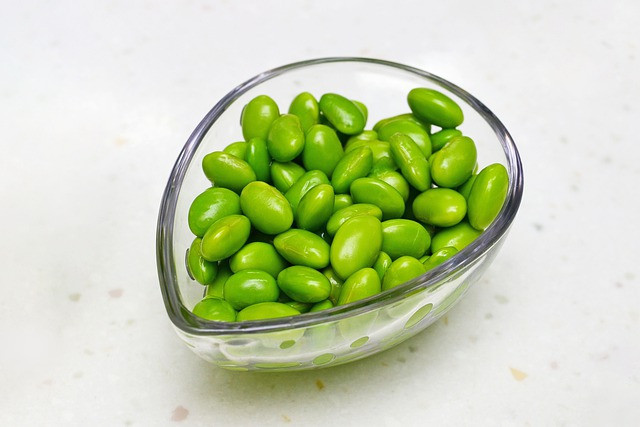
High-fibre diets help lower LDL levels, which protect the heart by removing “bad” cholesterol from the bloodstream.
Beans are a great source of iron.
University of Leeds:
The University of Leeds found that every 7 grammes of fibre lowered the incidence of cardiovascular disease by 7%.
Edamame (dry-roasted or frozen) is a healthy snack option.
2. Tea Rooibos
According to a Penn State study, inflammation is closely linked to obesity, diabetes, cancer, and, yes, heart disease.
So-called “belly fat hormone” cortisol can draw lipids from the bloodstream and deposit them in fat cells.
Rooibos Tea:
The unique flavonoid Aspalathus makes rooibos tea so excellent for calming the mind.
Stress chemicals that stimulate hunger and fat storage are reduced by this substance.
Listed among the most excellent teas for weight loss, it has plenty of benefits.
3. Tomatoes
No other non-starchy “vegetable” is eaten as often as tomatoes and tomato products.
Antioxidant:
The lycopene (an antioxidant) in tomatoes is good news, say the researchers.
Regular consumption of lycopene-rich tomatoes may lessen the risk of heart disease, skin damage, and cancer.
“Tomato pill”
A concentrated “tomato pill” enhanced blood vessel expansion by almost 53% compared to a placebo.
Grape and cherry tomatoes are healthier options because they contain disease-fighting polyphenols in their skins.
4. Walnuts Heart-shaped walnuts deliver!
They’re high in antioxidants and omega-3 fatty acids, which can help prevent heart disease, which kills roughly 600,000 Americans each year.
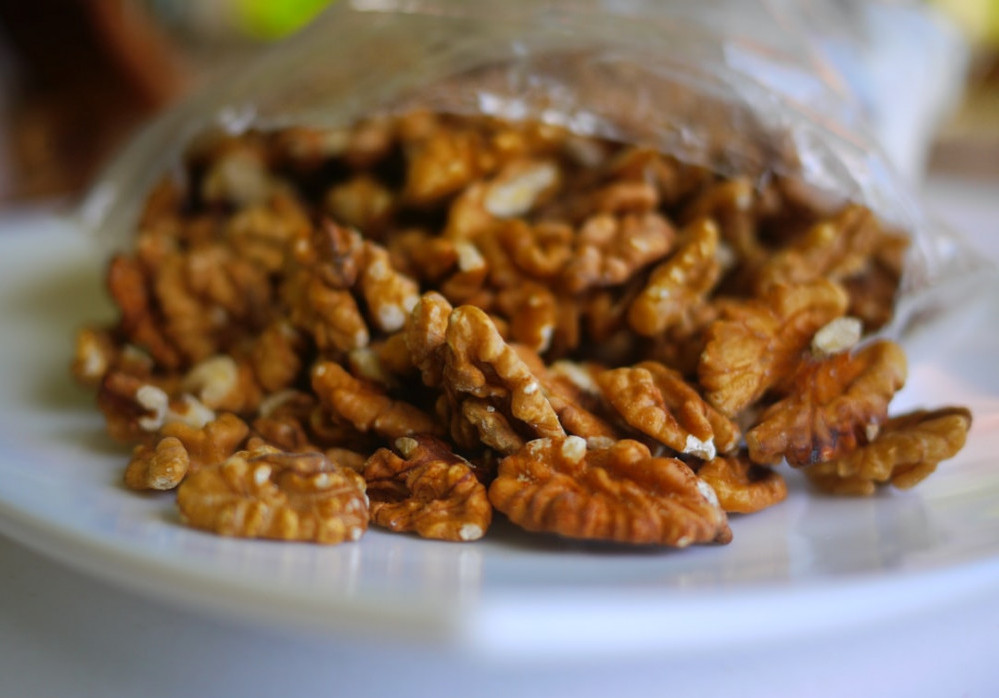
Heart Disease:
An ounce of walnuts five times a week, or about one handful daily, lowered heart disease risk by 40%!
WALNUTS OIL CONTAINS MOST OF THE HEART-HEALING PROPERTIES.
Or get walnut oil for dressing and cooking.
Want more valuable hints?
Get daily recipes and food news by subscribing to our newsletter.
5. Chocolate Good news, chocoholics.
People who drink or eat cocoa have better cardiovascular fitness than those who don’t.
High-quality Chocolate:
Women who ate one to two servings of high-quality chocolate per week had a 32% lower risk of heart failure.
17% Lower Risk of Stroke:
Men who ate the most chocolate (approximately 1/3 cup of dark chocolate chips per week) had a 17% decreased risk of stroke.
Cocoa
Polyphenols and flavanols, anti-inflammatory chemicals found in cocoa, are responsible for their heart-healthy effects.
To get the most antioxidants from dark chocolate, go for 70% cacao or higher!
6. Flaxseeds
There are only 55 calories per spoonful of these super seeds, nearly three grammes of fibre!
That’s a good one.
Omega-3 fats:
Plant source of omega-3 fatty acids, flaxseeds help reduce inflammation and prevent heart disease.
Good HDL cholesterol is raised by consuming heart-healthy lipids like flaxseed.
Flaxseeds add a nutty flavour to smoothies, salad dressings, and yoghurt.
The solid seeds aren’t easily digestible:
Thus, ground flaxseeds are required for the full cardiac benefit.
7. Garlic sprouts
Garlic with bright green shoots growing from the cloves is usually thrown out.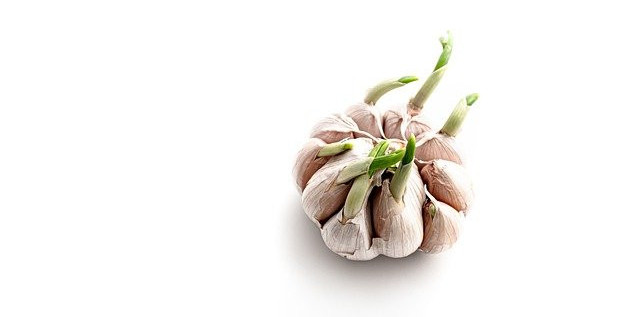
Excellent Antioxidant:
In fact, it has more excellent antioxidant activity than fresh garlic, according to research.
Because it’s odourless (let the kissing begin!)
Aged garlic extract (A.G.E.) Plaque build-up in the arteries was reduced by participants who took four tablets daily.
8. Yoghurt
Those who ate yoghurt for 2% of their daily caloric intake, or one six-ounce cup every three days, had a 31% lower risk of hypertension.
Another study linked weekly yoghurt consumption to a 6% decrease in hypertension risk.
Vitamin D and Calcium:
It’s all about vitamin D and calcium, those two crucial elements.
Yogurt is high in potassium, which is a recognised blood pressure reducer.
Flavoured yoghurts tend to be high in sugar.
Experts recommend one of these weight loss yoghurts.
9. Sweet Potatoes
Delicious and high in fibre and minerals, sweet potatoes are the king of slow carbs.
Inhibitors of fat storage, carotenoids are antioxidants that reduce insulin resistance.
Decreased risk of diabetes, a significant cardiovascular danger.
Bonus: its high vitamin content (A, C, and B6) gives you additional energy to work out!
10. Boiled Peanuts
This Southern snack has five times the resveratrol of dry-roasted, oil-roasted, or raw peanuts.
Bitter Red:
This is the bitter red papery skin that we chuck when eating raw peanuts containing resveratrol.
Boiled peanuts are lower in calories and fat than raw or dry roasted peanuts
11. Wild Salmon
Not all pink-marbled fish are made equal.
Salmon, especially sockeye, eat a lot of astaxanthin-rich plankton, so they receive lots of it.”
Astaxanthin is added to salmon feed pellets because natural astaxanthin is lacking in the feed.
12. Avocados
Avocados are rich in monounsaturated and polyunsaturated fats, which help decrease LDL (bad cholesterol).
Avocados also lessen the risk of heart disease and inflammation, according to Splaver.
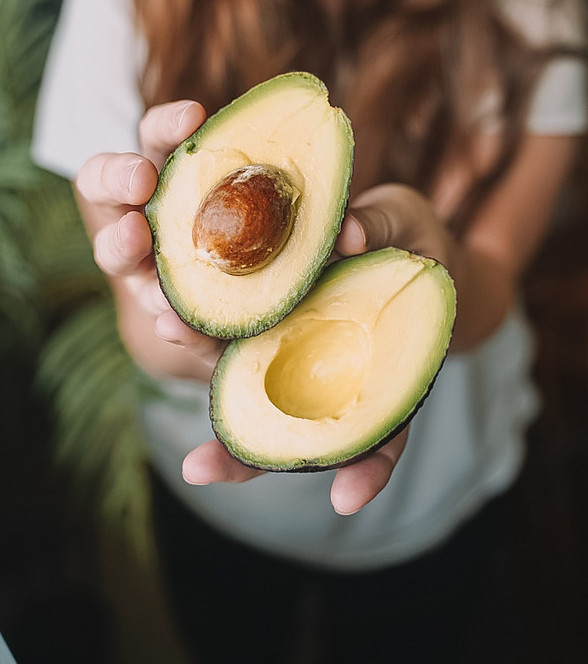
13. Kale
Kale is a typical anti-inflammatory superfood made into crispy chips or mixed with other veggies for a salad.
Vitamin K, A, and C are fat-soluble vitamins found in spinach, as well as calcium, which helps strengthen bones.
14. Almonds
You may use it to top warm porridge, make creamy butter, or just snack on it. What’s best?
In addition to decreasing LDL levels, almonds are high in magnesium and antioxidants, which protect the heart.
15. Berries
Stock up on berries next time you go shopping. “Antioxidants in berries help prevent free radical damage.”
Heart Disease and Cancer:
This may increase the risk of heart disease and cancer, according to registered dietitian Suzanne Fisher of Fisher Nutrition Systems.
The low-glycaemic berries don’t cause sugar spikes that contribute to insulin resistance.
16. Grain
The bran and germ are not removed during processing.
Hence, whole grains contain the entire grain.
Lower Blood Cholesterol:
Blood cholesterol and heart disease are reduced by fibre.
So whole grains help reduce obesity risk.
” Remember to use whole-grain toast instead of Wonder bread next time you make a peanut butter and jelly sandwich!
So, you’ll be less tempted to go back for seconds since you’ll be complete.
17. Barley,
Pearled barley is a healthful grain that may be added to soups and stews or served as a side dish with spices.
A previous article quoted Jessica Crandall, RD, C.D.E.,
A nutritionist says dietary fibre “helps you extract and remove cholesterol, which is linked to heart disease.”
18. Kamut
Contrary to popular belief, Kamut, or Khorasan wheat, is a healthy grain that should be included in your diet.
With omega-3 fatty acids, protein (almost 10 grammes per cup!) and heart-healthy fibre (21 grammes per cup), it’s a superfood.
This was reported in eight-week research in the European Journal of Clinical Nutrition.
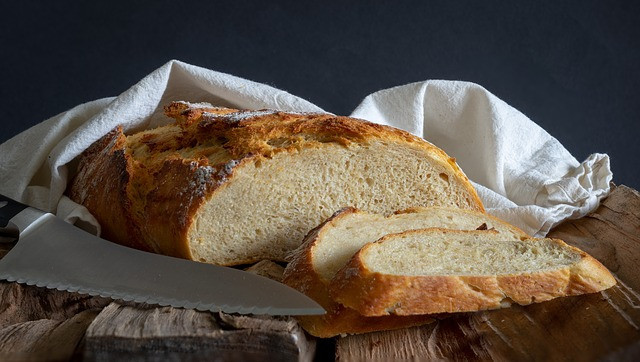
19. Ginger
Ginger is more than just a tasty addition to smoothies and sushi with its firm root.
Cholesterol:
One study found that three doses of three-gram ginger capsules reduced total, LDL, and VLDL cholesterol.
Its anti-inflammatory and antibacterial properties have been linked to gingerols.
To assist your heart, add fresh ginger to your smoothie or tea.
20. Rolled Oats
Stock Photo For your heart, oatmeal isn’t just a quick breakfast.
Oatmeal lowers LDL (“bad”) cholesterol, non-HDL cholesterol (total cholesterol minus the
Oatmeal:
beneficial cholesterol), and cholesterol, which transports harmful cholesterol throughout the body.
Oatmeal has 4 grammes of fibre per serving, keeping you full until lunch.
One of our overnight oats recipes is perfect for a quick and easy breakfast.
I hope you enjoyed my Blog Best Foods for your Heart Health.
Please Leave Questions and Comments in the sections Below.
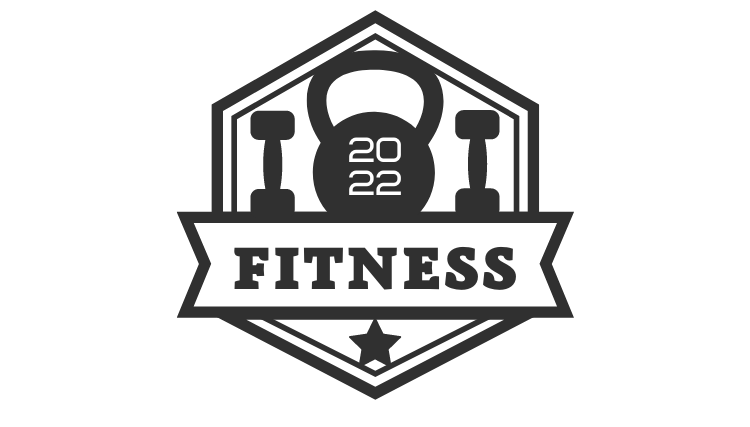

It has become my routine to consume oats from the ones listed here. I have been eating white rice mixed with oats for about 2 years, and when I cook it and eat it hot, the flavor is the best. I would recommend it to anyone because it is good for health and has a nutty flavor.
In particular, it seems that the ratio of oats to white rice is 8:3, so even if you eat a lot, there is no burden on your weight.
Thank You For Your Comment Minjum,
That is very interesting about the white rice mixed with oats. I do like both but I never thought of eating both together. I shall try this and hopefully, I will lose some weight.
I am always looking for ways to control my weight and that recipe might be the solution.
Thanks again
Elke
Hi Elke,
I agree with you on the content about foods to consume for a good and healthy heart. It is not for nothing that people are encouraged to have a healthy or well-balanced diet. A healthy diet will save you from many troubles – A correct daily diet will slow down the aging process…
My question on the article is as follows: Is that all in terms of best foods to consume for heart health? – Or, you have just decided to focus on the foods listed in your article.
Thank you.
Thank you for commenting Aubin.
I have done research mainly on what is good for the heart.
In saying this all the food which are listed are also good for the whole body.
By eating this foods you get a lot of vitamins and nutrients in our system it is wise to say away form junk food which of no do anything for us except but on weight.
Elke